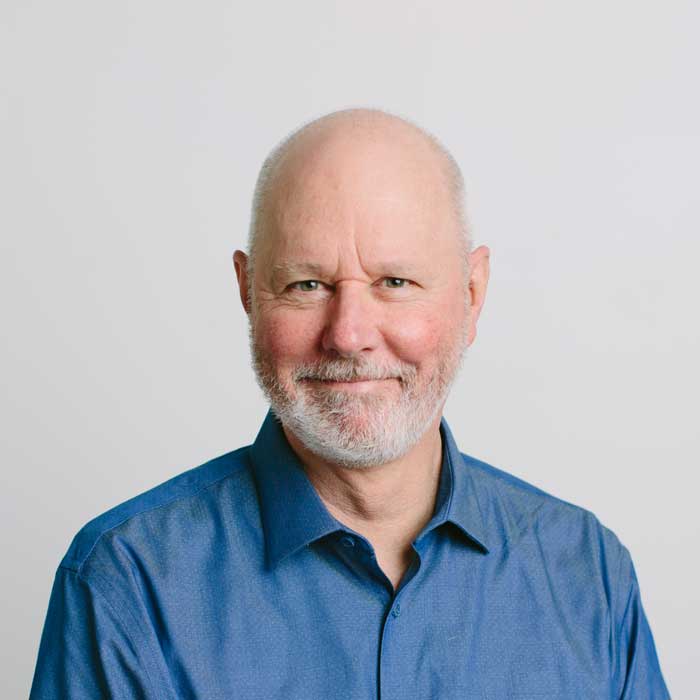Dr. Theresa Tam doesn’t often share personal experiences, she admitted to a rapt audience in Rideau Hall. But the national chief public health officer opened up at a symposium on online hate in Ottawa last month.
When the pandemic hit, “everything was blown out into stratospheric proportions,” Tam said. Her social media followers dramatically increased overnight, delivering an onslaught of abusive messages and racist accusations of disloyalty to Canada. Having a social support system in place was crucial, she said.
Her story emphasized not only how online abuse can damage a person — Tam still isn’t sure she’s entirely healed — but how it can affect a leader’s ability to communicate important public messages and maintain credibility during a crisis.
Tam’s was just one of the visceral experiences shared at a symposium hosted by the Governor General, a non-partisan gathering to discuss the growing dissemination of hate in Canada and tackling its impact.
Hate crimes have been on the rise since 2015, according to Statistics Canada, with a 72 per cent increase from 2020 to 2021. Those targeting Asian communities have doubled twice between 2019 and 2021.
Hate against queer communities has also climbed, and most recently, the genocide in Gaza has compounded discrimination against Muslim and Jewish people.
According to a report by the Canadian Women’s Foundation, an increase in hate crimes can be attributed to the uptick of hate in digital spaces. And a series of 2022 government roundtables draws a link between women and gender-diverse people’s fear of being targeted online and their silence in the public sphere.
Gov. Gen. Mary Simon, the first Indigenous person to serve in the post, has been outspoken about being attacked online for her identity. Beyond government voices, Simon’s symposium included perspectives from academics, media and tech representatives and youth and mental health workers, including Anila Umar, CEO of Calgary’s Centre for Newcomers, and Wisdom2Action executive director Fae Johnstone. Some attendees would come to call the event a “safe space.” The Tyee attended the symposium.
In the background of that conversation was the ongoing debate around a highly contested piece of legislation: Bill C-63, or the Online Harms Act. The Liberal government’s long-awaited and sprawling bill is aimed at minimizing harmful content online while increasing penalties for spreading or inciting hate speech.
It’s the latest piece in the Liberals’ effort to regulate the internet, following the Online News Act, or Bill C-18 — which resulted in Meta banning Canadian news content from its platforms — and the Protecting Young Persons from Exposure to Pornography Act, or Bill S-210, which mandates age verification for accessing sexually explicit images online.
Opinions on all three bills are divided. Some claim the online harms bill goes too far; others, not far enough.
Some conservatives opposed the Governor General’s decision to host the symposium while the Liberals’ bill is in the spotlight.
More than just ‘mean internet comments’
Symposium panellist Umar of Calgary’s Centre for Newcomers has worked with clients who have faced online hate, bullying or harassment that police fail to act on, she told The Tyee. Those incidents aren’t treated as crimes by the justice system, she said.
“Maybe whatever harassment somebody is facing online isn’t going to affect middle-aged, middle-class white males. But it certainly is going to affect a queer person of colour who has family overseas and is being tagged, outed and doxxed,” said Umar. Someone might be barred from entering their home country, she added, or arrested if they do.
“We can’t have solutions without knowing what the problem and ramifications are. It doesn’t make any sense how it couldn’t be criminal when people’s lives are at stake.”
Government ought to consult with people with lived experience and expertise, said Umar, referencing the diverse perspectives on the symposium panels and even the audience as a group of people government could pay to consult on online abuse.
Umar thought the symposium conversation got closer to understanding the depth and diversity of the impacts of online harms. But has Canada?
“Absolutely not.”
What does Bill C-63 tackle?
Bill C-63 requires online platforms to take steps to prevent and mitigate harms from content that sexually victimizes a child or survivor, is used to bully a child, induces self-harm or incites extremism, terrorism or hatred.
The law proposes three new bodies to enforce the act: a digital safety commission, a digital safety ombudsperson and a digital safety office. It would also allow people to make complaints about sexually victimizing content and authorize the digital safety commission to force the platform to remove it or face severe penalties.
Some experts have said it’s more measured than other proposals, like banning hate speech or mandatory age requirements for social media use. Finding a middle ground that protects people but doesn’t overstep free expression is part of the debate.
University of Ottawa media policy professor Michael Geist agrees it’s better than legislation the Liberal government proposed in 2021. “That online harms consultation envisioned measures such as takedowns without due process, automated reporting to law enforcement and website blocking,” he wrote.
“Those measures are largely gone, replaced by an approach that emphasizes a duty to act responsibly, make certain content inaccessible and protect children.”
One controversial provision centres on the ability to report fear of a hate crime.
“It’s about people having a right to go to court to ask for protection against something they fear. Which is a very old rule,” said Ivor Shapiro on Canadaland.
“If you think your ex-partner has armed themselves with a gun and you have reasonable reason to fear they intend to use it on you, you have a right to go to court and say ‘I want them kept away from my street.’ And if the court thinks that’s reasonable, that’s what a recognizance is.”
The bill also proposes to create a new separate hate crime offence and increase maximum sentences for hate propaganda offences. Additionally, an amendment to the Canadian Human Rights Act would make it a discriminatory practice to communicate or cause hate speech that is likely to build hatred of a group.
Civil society groups have called on Justice Minister Arif Virani to separate the portions of the bill that propose changes to the Criminal Code and the Canadian Human Rights Act and put it in its own piece of legislation as they claim it risks chilling free speech and overshadowing the bill’s main purpose.
“We’ve heard concerns that being a defender of Zionism could land someone into legal trouble with this legislation,” said Richard Marceau of the Centre for Israel and Jewish Affairs while moderating a panel last month for the organization.
But Emily Laidlaw, who was on a panel at that event and holds the Canada Research Chair in cybersecurity law, responded that Zionist opinions shared online wouldn’t fall within the hate speech regulations because the law’s threshold for hate speech is very high. Hate speech is “essentially communicating statements that are predicated on the destruction of an entire group of people,” Laidlaw explained, adding there ought to be certain mandates for expertise on free expression rights for anyone enforcing the act on the digital safety commission.
Others think it doesn’t go far enough. The bill doesn’t explicitly tackle potentially harmful forms of artificial intelligence or disinformation, beyond deepfakes — videos where a subject’s face has been digitally altered to look like someone else — and restricts them only in relation to intimate content. According to the bill, such content must be removed by the platform once identified, though questions remain about how this will be enforced.
The inherent problem with the bill, wrote Derek Hrynyshyn, a professor in communication and media studies at York University, is in what we understand to be online harm.
According to Hrynyshyn, there needs to be a “legal obligation on platforms to deprioritize content that is clearly false.” This would be key to mediating online polarization and anti-democratic populism, he wrote.
Addressing the online far-right radicalization machine
“Hate isn’t a coincidence,” Johnstone told the audience at Rideau Hall. “It’s an organized effort.”
“We are in a time where regressive, far-right groups are taking advantage of the public’s lack of familiarity with trans and gender-diverse people,” she added in an interview with The Tyee.
“And so we’re seeing these groups using a caricature of trans people to fuel radicalization into a much scarier far-right echo chamber.”
This approach is “artful,” noted Johnstone. Throughout the pandemic, far-right conspiracies involved theories about COVID-19 being a hoax or lockdowns being unnecessary. But as the public health crisis faded from the public eye, the right needed a new issue to latch on to, she said.
“I have been subjected to repeat online attacks by far-right groups and others who take issue with me as a transgender woman speaking up about my experiences and the needs of my community,” said Johnstone. “I have had death threats, I have had my hotel doxxed in Regina last year, I’ve had folks create caricatures and memes about my appearance.”
This new online harm legislation, specifically the ombudsperson and the strengthening of the role of the Canadian Human Rights Commission, would have helped her when a boycott campaign erupted after she was featured in an ad for Hershey chocolate bars. It would have allowed her to report concerns that weren’t being taken seriously as well as “bolster accountability” for social media platforms, she said.
As for addressing the far-right radicalization that takes place online, the accountability mechanisms in Bill C-63 will help to create less of a pipeline into extremism, she said.
“There is a bigger conversation to have around online hate and far-right radicalization,” added Johnstone. “But this bill does take some important steps in the right direction.”
Johnstone said Canada needs to invest in research about what causes radicalization and how to create effective, local de-radicalization interventions to “bring back folks out of the far-right cult conspiracy pipeline.”
“This is a space that has had an absence of regulation for so long,” said Johnstone. Reflecting on her experience reporting hate speech on X, she notes that “the private sector is not engaging with this in good faith because they make money off the echo chambers they create.”
Johnstone added she hopes federal leaders can “set the politics and partisanship aside and deal with this as an issue crucial to Canadian democracy that shouldn’t be shaped by a partisan political agenda.”
“I sympathize with policymakers that it’s a moving target,” said Umar. “What may have been an issue 20 years ago isn’t now, and how we identify as humans changes over time.”
Many walked out of the symposium that day empowered, even healed in some ways. But it isn’t clear whether the seemingly radical solutions brought forth in Rideau Hall — from combating harmful gender norms to Theresa Tam calling for free mental health support for all to organizations simply standing by their employees — will make their way into concrete change for those most vulnerable on the frontlines of online abuse.
And while Bill C-63 addresses tech companies’ responsibility in mitigating harmful content on their platforms and carves out paths for people to report it more easily — and see results — it doesn’t address the root issues of why the hate exists in the first place.
“Policy is only ever as good as implementation and accountability for it,” said Umar. “We have a law about that, policy around this. OK, then why do we still have this much xenophobia, Islamophobia, antisemitism and anti-trans agendas going on?”
“If we have so much to protect us from this, why isn’t it working?” ![]()
Read more: Rights + Justice, Media, Science + Tech

















Tyee Commenting Guidelines
Comments that violate guidelines risk being deleted, and violations may result in a temporary or permanent user ban. Maintain the spirit of good conversation to stay in the discussion and be patient with moderators. Comments are reviewed regularly but not in real time.
Do:
Do not: